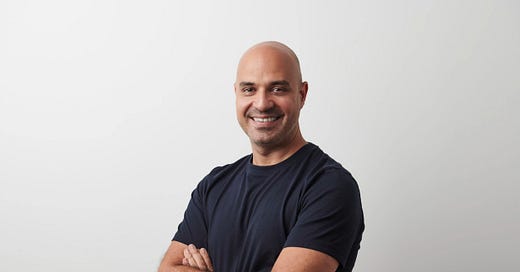One pandemic and two pivots later, UAE's Seez finds its hallowed exit route
This is also Nuwa Capital's first exit from its $100m MENA fund 🚗
In the Middle East where IPO and M&A exits are still few and far between, Seez’s buyout announcement was very welcome news indeed.
The Dubai AI-powered automotive software firm received an offer last week to be fully acquired at an equity value of $46.2 million by London-listed Pinewood Technologies Group.
It is one of the few known M&A tech exits from the Middle East North Africa (MENA) region, signaling early signs of exit maturity.
The cash-and-share transaction provides a partial exit for Seez’s founder and CEO Tarek Kabrit, and also provides liquidity to its early investor Nuwa Capital, which wrote its first cheque in Seez back in 2021 for its Series A round. Seez is Nuwa’s first exit from its $100 million MENA-focused debut fund.
Both Seez and Nuwa Capital expressed hope that this will set the stage for more such inbound M&As in the Middle East.
“We don’t see a lot of these (exits), so I think it’s exciting. When you start seeing such precedents of things happening, it will bring more publicly-listed companies to buy technology from the region instead of just exporting it here,” shared Kabrit in a video call.
It also rejects the assumption that Middle East founders can’t build strong defensible tech from the region.
“(Why can’t founders) go the other way around, build the tech here, expand internationally and then get acquired for tech instead of just our regional presence?” asked Kabrit.
But even going global wasn’t a straightforward journey for Seez, which first took shape in 2016 in a completely different form – a car aggregator platform. When the COVID pandemic hit, revenues at Seez plunged 84% virtually overnight.
“We had just closed the funding route right before COVID. We closed it in February and then in March, COVID hit. We had cash in the bank, so that was very lucky, but our revenue dropped so we didn’t know how long it was going to last. Dealers were not spending any marketing budget at the time, and the likes of Carvana and CarGurus were taking off like crazy,” recounted Kabrit.
Since then, Seez steered through two hard pivots, expanded into Europe, and nearly ran out of money, before it finally evolved into a full-fledged AI-powered data and analytics software for car dealers and manufacturers. Its current products include a virtual assistant, e-commerce and inventory management, and digital marketing services.
Nine years on, the rollercoaster appears to have paid off.
Today, Seez is in 16 global markets across the Middle East, Europe, Mexico and Australia and generates $4.4 million in annual recurring revenue as of December 2024, a figure it expects to triple in one year. Seez is also expected to hit cash flow positive by the middle of 2025, added Kabrit.
By the time Pinewood’s offer came around, Seez was in a completely different financial position with multiple funding options on the table. “We actually had four M&A offers and three VC term sheets before we settled on this,” he shared.
Seez eventually chose Pinewood for several reasons, including company alignment, leadership chemistry and growth prospects, among others. “It was the only one that had such an interesting potential upside going forward – 2-3x growth over the coming years. We believe in their growth story and what they have,” shared Kabrit.
As part of the deal, Seez will remain an independent entity under Pinewood. Kabrit and the co-founders will continue to lead the business under the parent firm, with their immediate focus being company integration and expansion into the US in 2025.
“We’re very happy with the outcome of this exit, especially to have this at the fourth year of our fund,” echoed Nuwa’s partner, Sarah Abu Risheh. She declined to share specifics on Nuwa’s returns but the deal is understood to have helped the fund achieve “well above” their hurdle internal rate of return (IRR).
"M&A appetite in MENA has really shifted over the last 10 years. While it’s traditionally been the go-to exit strategy, things are changing, especially with the IPO market maturing. We're seeing this firsthand in our portfolio, with many companies catching the eye of global and regional players earlier than expected,” said Abu Risheh.





